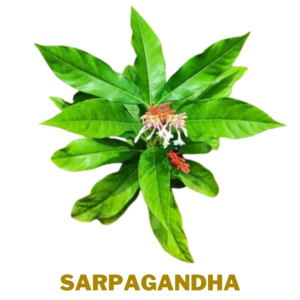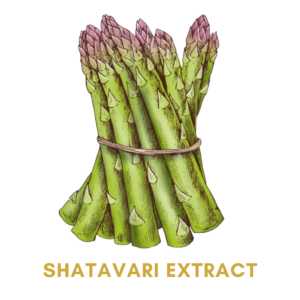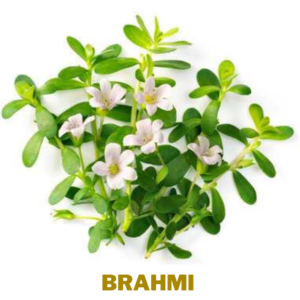Stress Management
Stress management refers to the set of techniques, strategies, and practices individuals employ to effectively cope with and reduce the physical, emotional, and psychological effects of stress. It involves recognizing the sources of stress, developing healthy coping mechanisms, and implementing relaxation and self-care strategies to promote overall well-being. Effective stress management can help improve one’s resilience, reduce the risk of stress-related health issues, and enhance overall quality of life by promoting a sense of balance and control in the face of life’s challenges.
Here The 5 Ayurvedic Herbs To Manage Stress
1. Ashwagandha
Ashwagandha, a popular adaptogenic herb in traditional Ayurvedic medicine, is believed to help manage stress through several mechanisms:
Cortisol Regulation: Ashwagandha has been shown to reduce elevated levels of cortisol, a stress hormone, in the body. By balancing cortisol levels, it can help mitigate the physiological effects of chronic stress, such as increased blood pressure and inflammation.
Anxiety Reduction: Ashwagandha has anxiolytic (anxiety-reducing) properties and is thought to interact with neurotransmitters like GABA, which play a role in calming the central nervous system. This can lead to reduced feelings of anxiety and stress.
Adaptogen Properties: Ashwagandha is classified as an adaptogen, which means it helps the body adapt to stressors and maintain homeostasis. It can enhance the body’s resilience to stress, making it easier to cope with challenging situations.
Improved Sleep: Chronic stress often disrupts sleep patterns. Ashwagandha may promote better sleep quality by calming the mind and reducing anxiety, which in turn helps the body recover from stress.
Antioxidant Effects: Ashwagandha is rich in antioxidants, which can protect cells from oxidative stress caused by free radicals. Reducing oxidative stress can indirectly lessen the impact of stress on the body.
2. Sarpagandha
Sarpagandha, also known as Rauwolfia serpentina or Indian snakeroot, is an herb traditionally used in Ayurvedic and traditional medicine systems for various purposes, including stress management. It contains compounds known as alkaloids, particularly reserpine, which have been studied for their potential effects on stress and anxiety:
Blood Pressure Regulation: One of the primary ways Sarpagandha may help manage stress is by its ability to lower blood pressure. Reserpine, found in Sarpagandha, has a calming effect on the central nervous system by reducing sympathetic nervous system activity. This, in turn, can lead to a decrease in blood pressure, which is often elevated during stressful situations.
Anxiety Reduction: Sarpagandha’s reserpine content may also have anxiolytic (anxiety-reducing) effects. By modulating neurotransmitters like serotonin and norepinephrine, it can help alleviate feelings of anxiety and promote a sense of calm.
Sedative Properties: Sarpagandha has mild sedative properties, which can help individuals relax and manage stress-related tension. It may be used as a natural remedy for sleep disorders and insomnia that are often exacerbated by stress.
Antioxidant Effects: Some compounds in Sarpagandha have antioxidant properties, which can protect cells from oxidative stress caused by free radicals. Reducing oxidative stress can indirectly contribute to better stress management and overall health.
While Sarpagandha has potential benefits for stress management, it should be used with caution and under the guidance of a healthcare professional. This is because it can have side effects, including significant drops in blood pressure, which can lead to dizziness, fatigue, and other adverse effects.
3. Shatavari
Shatavari (Asparagus racemosus) is an herb with a long history of use in Ayurvedic medicine, and it is believed to have several potential benefits for managing stress:
Adaptogenic Properties: Shatavari is classified as an adaptogen, which means it helps the body adapt to various stressors and maintain balance. It may assist in improving the body’s resilience to stress and reducing the physiological and psychological impacts of stress.
Hormonal Balance: Shatavari is known for its potential to support hormonal balance, particularly in women. By helping to regulate hormonal fluctuations, it can alleviate some of the emotional and physical symptoms associated with stress, such as mood swings and irregular menstrual cycles.
Calming Effects: Shatavari is often considered a calming herb. It may have a soothing effect on the nervous system, reducing anxiety and promoting relaxation. This can be especially helpful for individuals experiencing stress-related tension and restlessness.
Anti-inflammatory Properties: Shatavari contains compounds with anti-inflammatory properties that may help reduce inflammation and protect against some of the harmful effects of stress.
Digestive Support: Stress can negatively affect the digestive system, leading to issues like indigestion and irritable bowel syndrome (IBS). Shatavari may support digestive health by reducing stress-related digestive disturbances.
Immune System Support: Shatavari’s immunomodulatory properties may help strengthen the immune system and enhance the body’s ability to cope with stress-induced health challenges.
4. Jatamanshi
Jatamansi, also known as Nardostachys jatamansi or spikenard, is an herb with a history of use in traditional Ayurvedic and Tibetan medicine. It is believed to offer potential benefits for managing stress and anxiety through various mechanisms:
Calming and Relaxing Effects: Jatamansi is often considered a natural sedative and relaxant. It can have a calming effect on the nervous system, helping to reduce feelings of anxiety and restlessness. This relaxation can contribute to stress management by promoting a sense of tranquility.
Anxiolytic Properties: Jatamansi contains compounds that may have anxiolytic (anxiety-reducing) properties. These compounds are thought to interact with neurotransmitters in the brain, such as GABA, which play a role in reducing anxiety and promoting relaxation.
Improved Sleep: Stress often leads to sleep disturbances and insomnia. Jatamansi may help improve sleep quality by calming the mind and promoting better sleep patterns. Adequate rest is crucial for effective stress management.
Neuroprotective Effects: Some studies suggest that Jatamansi may have neuroprotective properties, which can help protect the brain from the damaging effects of chronic stress. This may involve reducing oxidative stress and inflammation in the brain.
Antioxidant Properties: Jatamansi contains antioxidants that can help combat oxidative stress, which is a common consequence of chronic stress. Reducing oxidative stress can have a positive impact on overall health and well-being.
Mood Enhancement: Jatamansi may have mood-enhancing properties that can help stabilize mood and reduce mood swings, which are often exacerbated by stress.
5. Brahmi
Brahmi, also known as Bacopa monnieri, is an herb commonly used in traditional Ayurvedic medicine and is believed to offer several potential benefits for managing stress and promoting overall mental well-being:
Adaptogenic Properties: Brahmi is classified as an adaptogen, which means it helps the body adapt to various stressors and maintain balance. It may enhance the body’s resilience to stress and reduce the physiological and psychological effects of stress.
Reduction of Cortisol Levels: Chronic stress can lead to elevated levels of cortisol, a stress hormone. Brahmi has been studied for its potential to reduce cortisol levels in the body, helping to mitigate some of the negative health effects associated with high stress.
Anxiolytic Effects: Brahmi is believed to have anxiolytic (anxiety-reducing) properties. It may interact with neurotransmitters in the brain, such as serotonin, to reduce feelings of anxiety and promote a sense of calm and relaxation.
Cognitive Enhancement: Brahmi is known for its potential to enhance cognitive function and memory. By improving cognitive abilities, it can help individuals better cope with stress and perform mental tasks more efficiently.
Antioxidant Activity: Brahmi contains antioxidants that can help protect the brain and other cells from oxidative stress caused by free radicals. Reducing oxidative stress can contribute to better overall mental health.
Neuroprotective Effects: Some studies suggest that Brahmi may have neuroprotective properties, which can help protect the brain from damage caused by chronic stress and age-related cognitive decline.
Improved Sleep: Brahmi may help improve sleep quality by calming the mind and reducing anxiety. Restorative sleep is essential for effective stress management.


